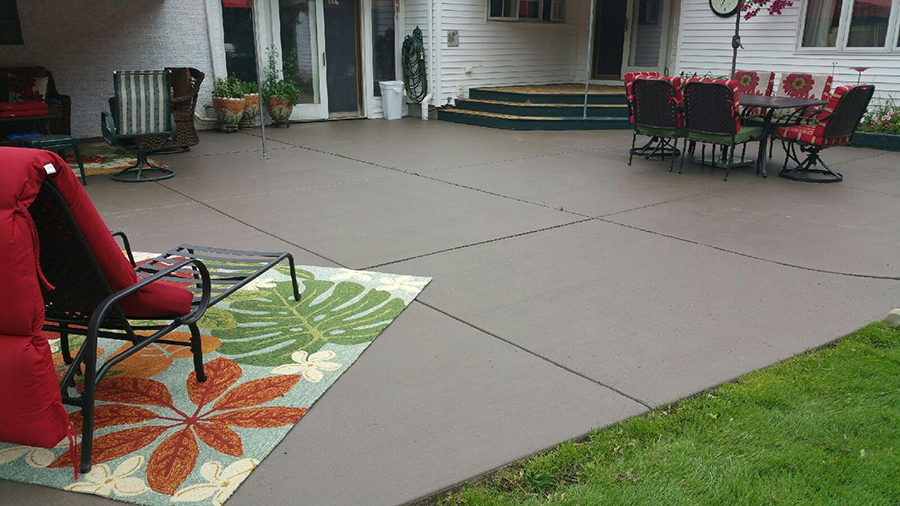Concrete Sealing FAQS
In the United States, concrete and asphalt make up 90 percent of driveways. Over time, your concrete driveway can crack and discolor due to age and weather. Rain and snow can also seep through the concrete, creating pools of water underneath, which also leads to cracking. While concrete, in general, doesn’t have to be sealed to perform well, sealing your concrete with a high-quality sealer can greatly extend the life of your concrete. With proper care, concrete can last for decades! The small amount per square foot will be well worth the investment when you have a great, long lasting driveway.
Concrete Sealing: What are the Benefits?
Sealing a driveway/walkway not only extends its service life, but it also improves the appearance of plain or a decorative concrete driveway by eliminating any unwanted intrusions into the pores of the concrete. Most seal coatings protect your driveway color from fading. If you live in an area with freeze-thaw conditions, a sealer should always be used on concrete to prevent moisture absorption. Plus, sealants make cleaning oil and other fluids that leak from your vehicle easier because liquid can not seep into the tiny pores in your driveway. Your concrete will be protected from moisture absorption, mold, mildew, exposure to chemicals, grease stains and oil stains. Sealing your concrete every two to three years will keep your driveway in tip-top shape! Your concrete driveway or decorative stamped concrete will look great, no matter how old it is.
What will happen if I don’t seal my concrete.
Because concrete is very porous, it can really absorb liquid. In freeze-thaw areas, the expansion of liquids creates cracks which can destroy the surface of unsealed concrete. Moisture that penetrates concrete can freeze and thaw repeatedly, causing it to shift and crack. This can also lead to mold and mildew buildup. Chemicals like oil, salt, and fertilizer can discolor and damage unsealed concrete. Oil spill and stains can create lasting damage to unsealed concrete. Oxidation from the sun will down the concrete, causing chips and flakes on the top surface.
What are the kinds of sealers?
Generally, there are two categories of sealers for exterior concrete: film-formers and penetrants. Penetrating sealers tend to offer the best protection from moisture absorption. They are good choices if you are looking for protection from freeze-thaw damage, want a natural matte finish and invisible protection that will not change the surface appearance. Film-forming sealers are available in water and solvent based versions. They come in acrylic, polyurethane, and epoxy and each will have different properties and effects. In general, water based versions are safe, but will wear off faster. There is also a fire risk if the sealer contains flammable ingredients. Shiny water-resistant sealers may make the pavement dangerously slippery, especially if you live in an area where rain, ice and snow are common.
Should you repair cracks before sealing?
Yes. It is important to fix cracks in your driveway before sealing. Even for minor cracks, it is important to provide a good, stable foundation before applying a sealer.
When should sealer be applied?
Most acrylic-resin sealers and some penetrating sealers can be applied as soon as new concrete can withstand the weight of the installer. Other reactive penetrating sealers and high-performing coatings should be applied only after the concrete is fully cured. This is usually about 28 days. Temperature is also important. It is best to wait until the weather is above 65 degrees Fahrenheit to seal your concrete.
How long does sealer last?
Penetrating sealers will last the longest, about 10 years or longer. That is because the surface is penetrated with this sealer and it will only sear away if the surface of the concrete wears away. Epoxy and urethane sealers have a similar performance and will last between 5 to 10 years, depending on traffic exposure. Acrylic-resin sealers only last between 1-3 years, but are also the cheapest.

